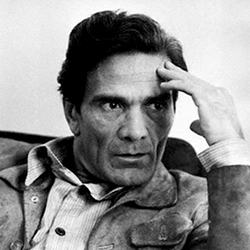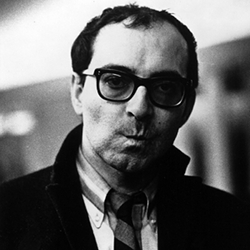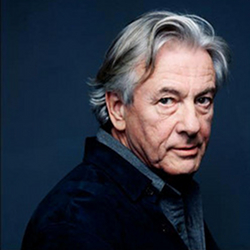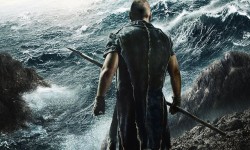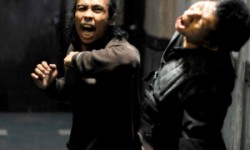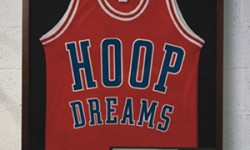
Noah Review - NP Approved
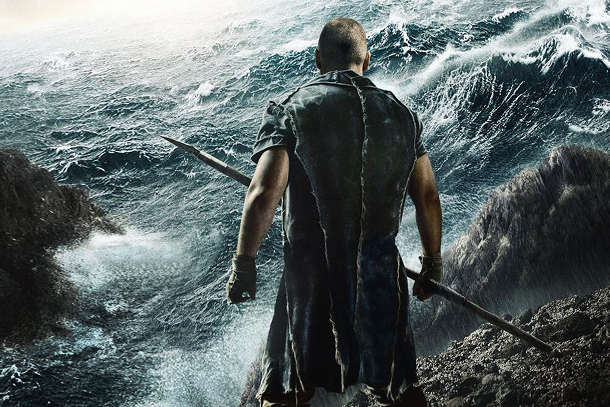
Noah (2014)
Cast: Russell Crowe, Jennifer Connelly, Ray Winstone
Director: Darren Aronofsky
Country: USA
Genre: Adventure | Drama
Official Site: Here
Editor’s Notes: Noah is now open in wide theatrical release. For an additional perspective, please read Parker’s review (20/100).
Noah is a difficult film to talk about. But then again, Darren Aronofsky has never taken the easy route with any of his films. Whether it be tackling math equations, drug addiction, eternal recurrence across the cosmos, a washed up wrestler seeking redemption or a mentally fragile ballerina obsessed with perfection, every single one of these films is a passion project that have taken very long times to get made. In every cut with his editors (in this case with Andrew Weisblum), every shot framed by frequent collaborator Matthew Libatique, every note composed by Clint Mansell and every performance he’s gotten out of his incredible casts, you can always tell that he’s going for broke. That he is determined to push the medium of film as far as possible to tell his stories of broken souls who push their obsession to the brink (and in some cases over) of their demises. And it shows. Whereas the works of equally popular auteur filmmakers like P.T. Anderson and Christopher Nolan more often leave me with a sense of alienated respect, Aronofsky’s films make me feel like I need a cigarette afterwards. And I don’t smoke.
Noah is a difficult film to talk about. But then again, Darren Aronofsky has never taken the easy route with any of his films.
With Noah, you can feel the intense passion and obsession that he brings to all his films, only this time he’s got the full (if somewhat reluctant) backing of Hollywood to tell a story that’s been following him since he wrote a prize winning poem about Noah in Grade 7. While we all know the story of Noah and the Ark, up until now it’s been repeated to the point of sanitization. Of a child’s drawing of an old man with a long white beard on a houseboat with two giraffes poking their heads out. And with the last two cinematic depictions of it involving Donald and Daisy Duck in their version of Sleepless in Seattle and Steve Carrell in yet another unnecessary sequel to a Jim Carrey blockbuster, we needed Aronofsky to remind us that this isn’t just some Sunday school fable. That this was the first apocalypse legend and a story of a man with the biggest case of survivors guilt who literally has the fate of mankind in his hands. This is dark, Old Testament territory here and Aronofsky does not flinch.

The film follows the basic arc and structure we’re familiar with. Mankind is wicked, save for Noah (Russell Crowe), his wife Naameh (Jennifer Connelly) and his three sons Shem, Ham and Japheth (played in their older selves by Douglas Booth, Logan Lerman and Leo McHugh Carroll). The Creator tells him of his plan to destroy the world to start over again and Noah’s task of building an ark to save the animals. Noah then builds said ark, the Great Flood occurs, forty days and nights of torrential rains, the flood subsides, the dove returns with the olive branch in its beak and the first rainbow occurs, thus letting everyone know that God will never do anything like this again. This time around, the story is told with many, MANY additions and creative interpretations. Most notably in the form of Ila (played in adult form by Emma Watson), the only survivor of an attack on a mine they meet on the way to see Methuselah (Anthony Hopkins) who has a scar across her abdomen, indicating that she’s barren. She not only becomes their adopted daughter/wife for Shem, but also plays the biggest part in Noah’s journey from saviour to potential executioner of the human race and his eventual redemption. The second most notable addition are The Watchers. The angels that helped man out in building their cities and as punishment were banished to Earth and became rock monsters who aide Noah in building the ark. The addition of these beings, as well as other instances of magic realism throughout the film, sells the notion of this not just being a world out of balance, but one where The Creator is still trying to figure out what it is. But aside from the new characters and plot elements, the biggest change to the story is Noah’s belief that while all the other animals will survive and repopulate the world, they themselves won’t. That they are just as wicked as Tubal-cain (Ray Winstone) and his followers and that man’s time on Earth is over. This leads to a climax that elevates the film onto the same level as that of The Last Temptation of Christ. Of taking something we’re all familiar with to an uncomfortable level of fever pitch immediacy and heartbreaking resolution.
That this was the first apocalypse legend and a story of a man with the biggest case of survivors guilt who literally has the fate of mankind in his hands. This is dark, Old Testament territory here and Aronofsky does not flinch.
As for the film’s form and execution, there is no way you could mistake this for another filmmaker’s work. This is Darren Aronofsky through and through. From the rapid editing from Requiem for A Dream that combines both the origins of the universe and evolution with the Creation myth as well as Noah’s apocalyptic vision to the cinematography that combines the hand held aesthetic of The Wrestler with the cosmic like imagery and compositions of The Fountain (particularly the shots of the character’s silhouettes against the sky), as well as the subdued golden lighting he favours, this feels like Aronofsky both refining his visual style as well as elevating it to an even bigger canvas. If you are going to see this film, I highly urge you to see it in IMAX where the artfully horrific visuals of the world both consumed with fire and water, courtesy of ILM, hit you with same overwhelming feeling that Noah has. Clint Mansell once again crushes it in the score department, along with a haunting final song “Mercy Is”, courtesy of punk legend Patti Smith. The cast all around is fantastic, not surprising given Aronofsky’s incredible handling of actors. For the first time in a really long time, Russell Crowe looks like he’s actually putting in a performance as he gives what is probably the first accurate depiction of Noah, complete with the self-isolated drunkenness that’s so often forgotten about the character. Connelly, Hopkins, Winstone and Lerman help to round out the ensemble. And Watson continues on her incredible run of post-Harry Potter roles with possibly her most complex role to date.
Even though I’ve already spent over a thousand words talking about it, I feel that I’ve only scratched the surface of what Aronofsky accomplishes with his latest and biggest passion project. From its complex themes to its horrifically beautiful visuals, fantastic performances and overwhelming emotional power, Noah is a film difficult to talk about but impossible to shake off and forget. It is a film to be championed and savored, since we may never see something like this ever again. Sure this’ll make people confused, angry and uncomfortable. But it’s films like Noah and directors like Darren Aronofsky that we need more than anything else in regards to the medium of film.









